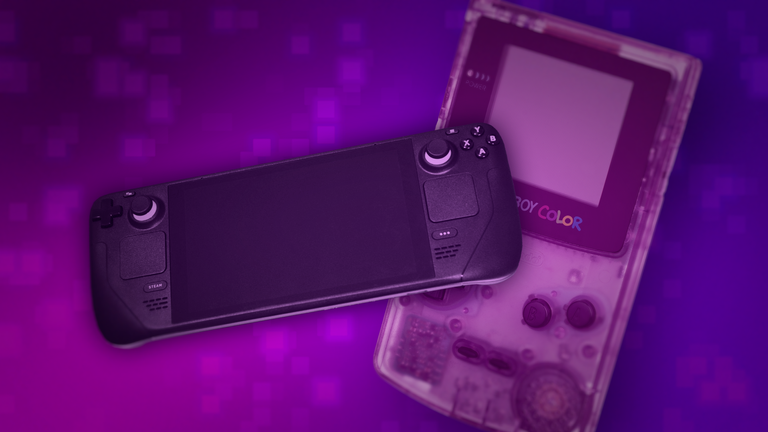Twenty-five years ago, few gadgets were on as many Christmas lists as Nintendo’s Game Boy Colour.
The iconic handheld, released in November 1998 and home to classics like Pokemon, Super Mario Land, and Tetris, was wrapped up under the tree in living rooms up and down the country.
With almost 120 million units sold, the Game Boy is one of the most successful games consoles ever made.
It still inspires new products to this day, with the retro Super Pocket – loaded with 90s classics like Street Fighter and Ghouls ‘n Ghosts – among the stocking-fillers vying for attention this festive season.
Not so long ago, though, portable gaming devices looked to be yesterday’s news.
The rise of the smartphone and games like Candy Crush usurped the once popular Nintendo DS and PlayStation Portable for many, while dedicated fans gravitated towards the power of consoles and PCs.
But as Christmas beckons again, the handheld market has arguably never been healthier.
Nintendo’s trend-setter
Despite being almost seven years since it launched, Nintendo’s Switch keeps selling.
It sailed past 130 million units sold last month, helped by being the exclusive home of two of 2023’s most critically acclaimed games in Legend Of Zelda: Tears Of The Kingdom and Super Mario Wonder.
Its hybrid nature, one which allows players to use it as a portable or hook it up to their TV, was novel in 2017 but has become trendy. Its success inspired Valve, which runs the industry’s most popular store for buying PC games, to release the Steam Deck last year.
Like the Switch, games once reserved for consoles or computers can now be taken on the go. The Deck means the year’s most critically acclaimed title, Baldur’s Gate 3, can be a portable game.
With Christmas shopping under way, the company released a fresh model. Starting at £469, the Deck OLED has a better screen, battery life and lighter build.
From pockets to backpacks
Engineer Lawrence Yang describes it as “the product we wish we could have shipped a couple of years ago”, when pandemic-stricken supply chains meant new tech products were hard to come by.
That couldn’t be further from the truth now. The modern handheld craze goes beyond the Switch and Deck, encompassing rivals like the Asus ROG Ally (£499) and Lenovo Legion Go (£699).
Admittedly, they do all rather stretch the definition of “handheld”. With its beefy dimensions and 7.4-inch display, the Deck OLED dwarfs the Switch – let alone the Game Boys of yesteryear, when portable meant pocketable.
But Yang thinks we’re at the “start of a new gaming handheld category”, blurring the line between those that stay in your living room and ones that come with you.
Just as bigger phones got people comfortable watching films on the train, the Deck could normalise playing blockbusters on a flight.
Removing the compromises
Games industry expert John Ozimek says devices like the Deck have “removed the compromises” people came to associate with portable and phone games, like simple graphics or being stuffed with adverts.
Canadian developer Nine Dots is in the process of bringing its hit adventure game Outward to the Switch, meeting players’ growing desire to play any game they want on the go.
Creative director Guillaume Boucher-Vidal believes in as little “friction” as possible to meet their needs.
He was an early backer of Google’s dead Stadia gaming service, a Netflix-style service that streamed games over the internet, and still thinks there’s a “bright future” for cloud gaming.
Great expectations
Console makers Sony and Microsoft are certainly taking notice.
Like Valve, Sony has a new gadget on shelves for Christmas with the £200 PlayStation Portal. It lets PS5 players stream their games from the console to the handheld.
Microsoft’s Xbox Game Pass, the closest thing gaming really has to Netflix, is more accessible than ever. It lets subscribers stream a growing library of games on phones, tablets, and consoles.
Steve Cottam runs a similar service, but for classic games. Dubbed Antstream, it makes more than 1,400 retro titles available across iOS, Android, PC, Mac, and Xbox.
In a world where often advert-laden phone games have taken the place of these more bite size experiences for more casual players, Antsteam and the Super Pocket scratch a particular itch without any off-putting trappings.
“People expect that accessibility with movies, music,” he says of game streaming.
“The idea we treat games differently is a fallacy If I’m at the airport and can keep playing the games I’ve been playing at home, that’s hugely appealing.”
There are no such trips in my immediate future, but the convenience does appeal.
I’m not saying I would play Baldur’s Gate 3 on the loo, but it’s pretty cool that I can.

